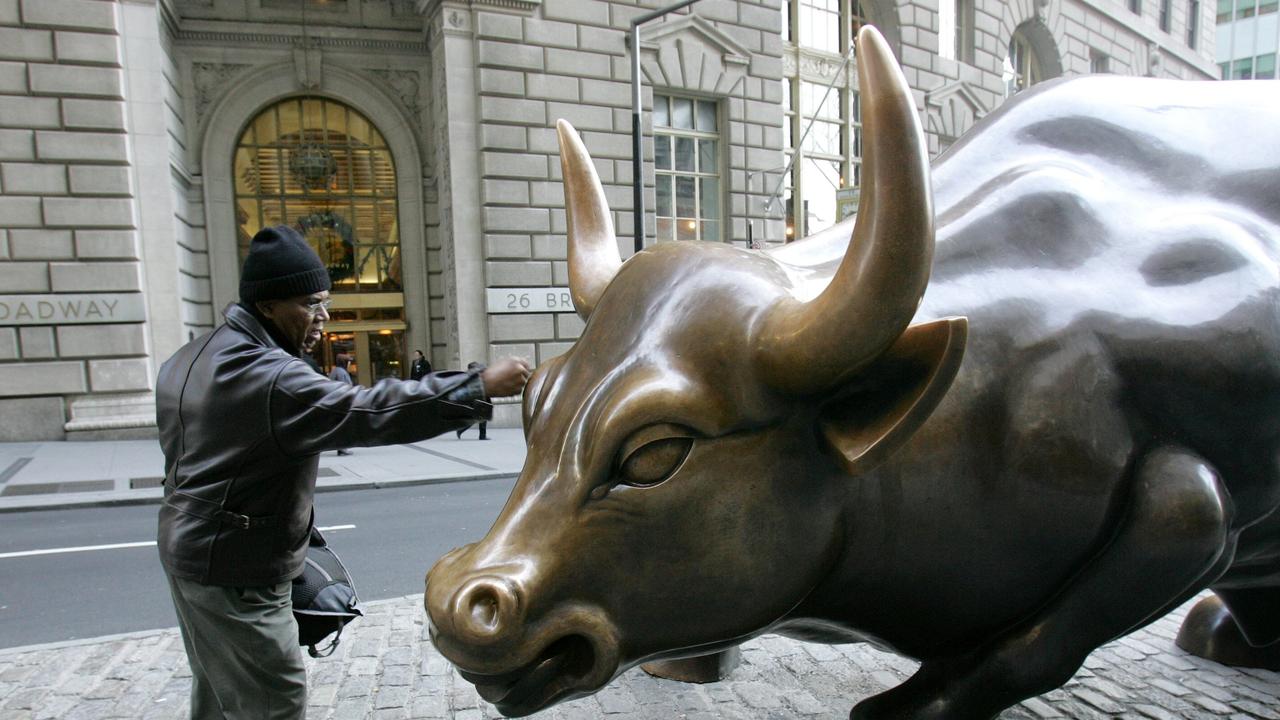CBA spikes as budget brings a purple patch for investors
WITH any Federal Budget, it takes a few days for the smoke to clear and for the true nature of the exercise to be revealed.

WITH any federal budget it takes a few days for the smoke to clear and for the true nature of the exercise to be revealed
In the immediate aftermath of this week’s budget two developments perfectly capture the contrasting fortunes of those affected: tomorrow, premiers meet in a collective rage as they struggle to cover $50 billion in health cuts; yesterday, the Commonwealth Bank finished the week after hitting a record high share price.
In many ways CBA is a proxy for the Australian investment market and it’s only a small exaggeration to say investors can’t believe their luck … they can’t believe, that is, they got away so relatively unaffected in a budget that hit other areas very hard.
Months ago CBA, our biggest home lender and biggest stock by local market capitalisation, saw its share price hit $70 and many called this level “the top”, but now it has soared over $80.
Why? Because stockmarket investors, as well as property market investors and every other form of investor, will be emboldened in a post-budget environment where social services are trimmed, infrastructure is boosted and the company tax rate is cut.
Moreover, there are specific shafts of positive news the market is only beginning to digest; changes to the treatment of company taxes in the longer term mean there will be less franking credits, but in the short term many large companies may rush to spend their credits before the tax bites — and that means for a time dividends at companies such as CBA may be even more lucrative.
As with any other milestone budget, traders are immediately nominating the areas where the latest changes may boost stock sectors: building and construction stocks obviously would benefit from the government’s rush to fund infrastructure during the next six years; medical and biotech sectors should benefit from the unprecedented (some may say unbelievable) plan to put up to $20bn into a government-run medical research fund; and investment bankers will be dancing in the streets as federal and state agencies rush to privatise assets Which is all very well if you pick the right stocks.
But investors will be on much firmer ground if they take note of four absolute free kicks offered by this budget. They are:
• The new wealth building device is the opportunity to be a company rather than a salary earner. Look at it this way: company profits are going down to 28.5 per cent, and de facto personal tax rates (more than $180,000 a year) are going up to 49 per cent when you add together income tax, disability levy and the new budget repair levy. It must surely be the biggest gap of this nature in the developed world and anyone who can form a professional service company should do so.
• Family trusts and other investment company vehicles have been left alone in the budget. With the aforementioned 20 per cent gap between company tax and personal tax, the family trust industry is going to go into overdrive.
• Superannuation has escaped lightly; the attractions of DIY super funds have only improved, with tax concessions remaining in place. In fact, having gone backwards, the tax concessions relating to super are getting better again. From July 1, if you are under 50, you can put in $30,000 at a 15 per cent rate; if you are over 50 you can put in $35,000. (Watch, though, that employers are legally bound to pay 9.5 per cent of salaries in super from July 1, too. It was 9.25 per cent this year and this change will affect contribution calculations.)
• Yes, house prices are high. And it’s true they are among the highest in the world, but negative gearing remains one of the few serious tax breaks that ordinary salary earners can exploit. With interest rates at 50-year lows, negative gearing has been subdued, but with personal tax rates now estimated as the eighth highest in the OECD, negative gearing will get a lift.
One observation is that after the blizzard of headlines about a new wealth tax, we’ve been told by the government the deficit repair levy will raise only $3bn in total across its expected three-year lifespan because there are only 400,000 people nationwide who are making this amount a year. Seriously? There is no way on earth the number is that small. More likely, it gives a good indication of just how many people are already paying very little tax under present company structures and unlimited negative gearing possibilities.
Of course it’s not all about opportunities; retirees’ access to the pension and pension cards has been tightened, visits to the GP will cost $7 and some seniors will no longer be able to get pharmaceuticals under discount schemes.
More to the point, for many of the smartest and most assiduous investors there is the spectre that the wealth accumulated under our re-energised wealth building structures mentioned above will soon be under pressure from inside the family as a new generation that is already finding it difficult to buy a home (new home buyers are fading as a portion of the house-buying public) will also find that from July 1 the deregulation of university fees is expected to double the cost of courses as diverse as arts or business, while the costs of medical courses could triple. (This is from a Grattan Institute report released earlier in the week.)
So here’s the rub: for the immediate period ahead there is every chance of a purple patch for investors — low rates, recovering growth, a relatively inexpensive sharemarket, splendid tax breaks available to anyone willing to learn the basics. But they better be learned fast because the price of education and buying a first home, the central planks of the next generation’s prosperity, look as if they are set to get very expensive indeed.
James Kirby is managing editor of Eureka Report.
Trial Eureka Report FREE for 21 days. Register at www.eurekareport.com.au



